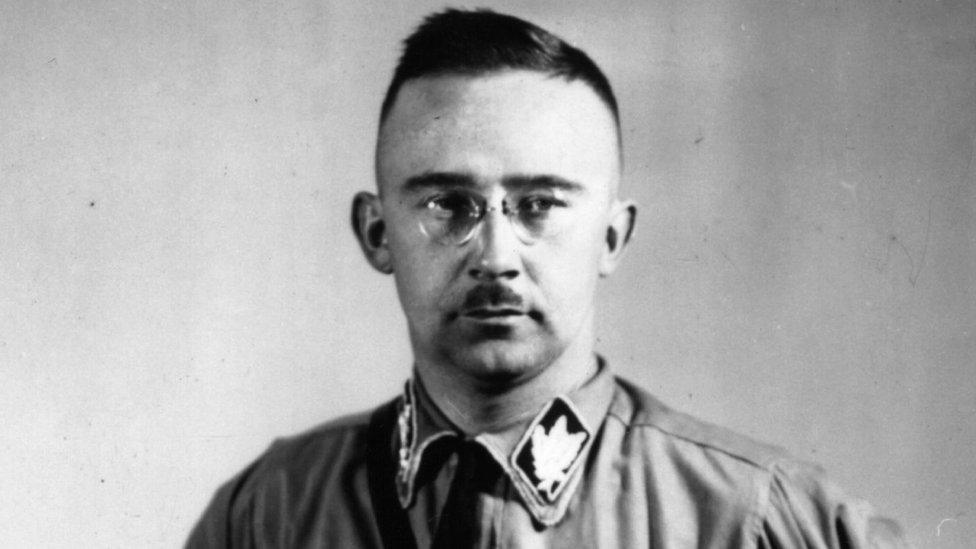Germany sees 'overwhelming' sales of Hitler's Mein Kampf
- Published
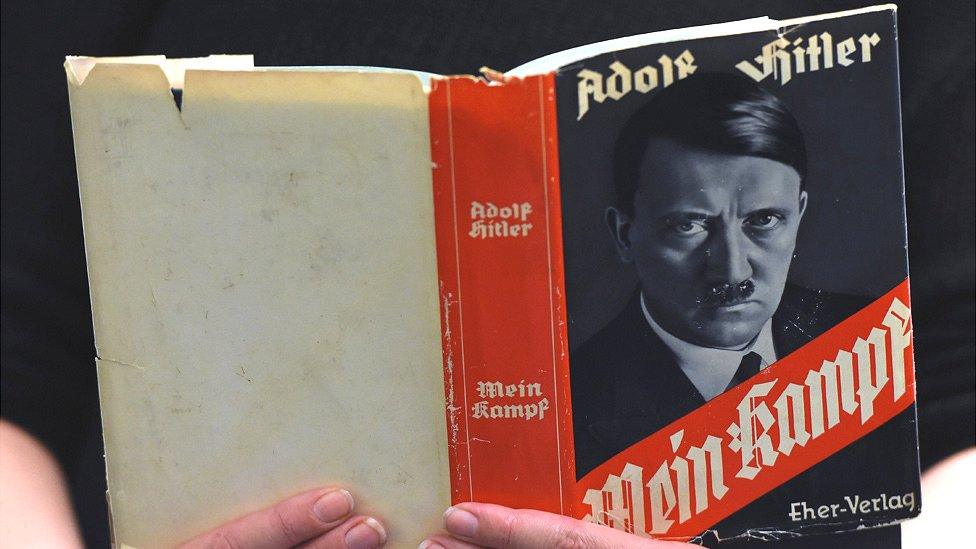
A Nazi-era copy of Mein Kampf: It was Hitler's manifesto for conquest and racial intolerance
The German publisher of a special annotated edition of Adolf Hitler's Mein Kampf says sales have soared since its launch a year ago.
About 85,000 German-language copies of the anti-Semitic Nazi manifesto have been sold. Publisher Andreas Wirsching said "the figures overwhelmed us".
He is director of the Institute of Contemporary History (IfZ) in Munich.
But the sales are well below those of best-sellers in Germany. It is an academic edition, costing €58 (£49).
At the end of January the IfZ will launch a sixth print run. The book contains critical notes by scholars.
Unlike the Nazi-era editions, the IfZ's Mein Kampf (My Struggle) has a plain white cover - without a picture of Hitler. The swastika and other Nazi symbols are banned in Germany.
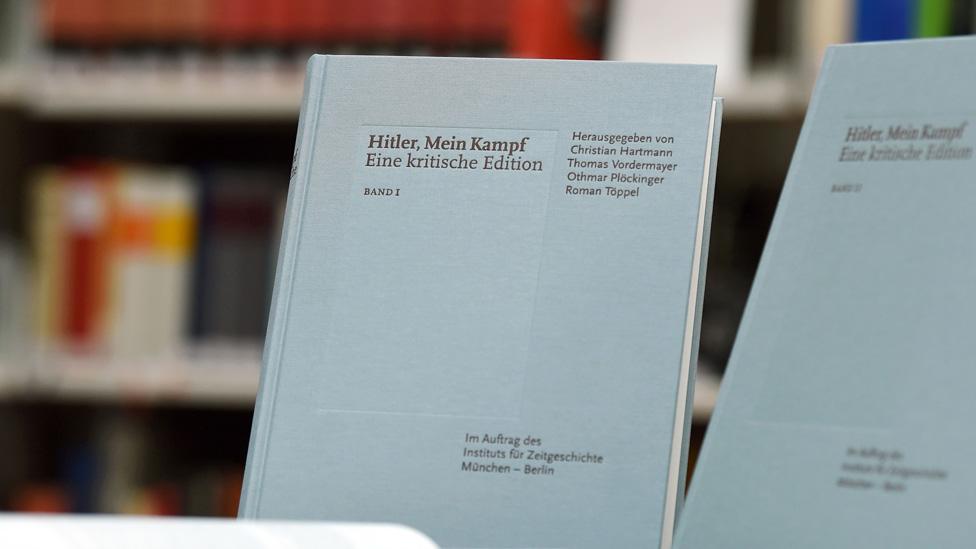
The IfZ edition of Mein Kampf includes copious notes by scholars providing context
Mr Wirsching told the German news agency DPA that the IfZ was planning a shorter, French-language edition. "But two-thirds of our commentaries will be translated" for it, he said.
The first print run in Germany in 2016 was 4,000 copies.
Austria MPs vote to seize Hitler's house
Himmler diaries show daily Nazi horrors
The decision to republish the inflammatory book was criticised by Jewish groups. Mein Kampf was originally printed in 1925 - eight years before Hitler came to power.
It sets out racist ideas that the Nazis put into practice later, including the denigration and oppression of Jews and Slavs.

'Not a runaway hit' - the BBC's Damien McGuinness in Berlin writes:
The fact that the Nazi manifesto reached number one in Der Spiegel's non-fiction charts, external in April is cited as evidence that Adolf Hitler's propaganda is making a comeback in Germany.
But the term "best-seller" does not necessarily mean very much. A quarter of all books sold in Germany are bought in the run-up to Christmas. At other times of the year it is possible to top listings with relatively few sales.
Mein Kampf (My Struggle) is an expensive academic text, and is being bought by libraries, schools and history academics.
For a German non-fiction book sales of 85,000 are not bad. But the figures don't indicate a runaway hit.
The current biggest non-fiction seller is The Hidden Life of Trees, a book about the ecosystem of woodland, which has sold half a million copies so far.
Read Damien's analysis in full here.

After Nazi Germany was defeated in 1945, the Allied forces handed the copyright to the state of Bavaria. Under German law copyright lasts for 70 years.
While the Bavarian regional government held the copyright, reprinting of the book was banned. But the copyright expired a year ago.
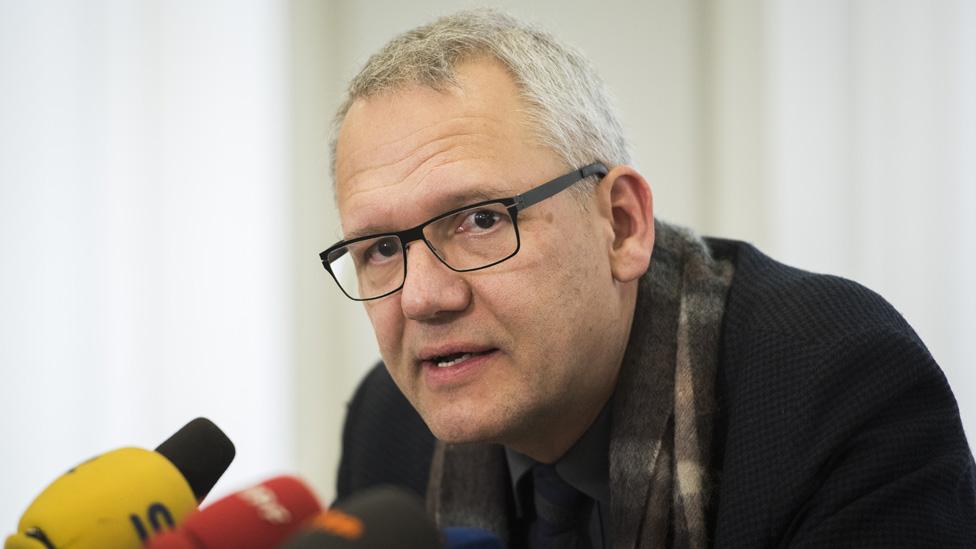
In December 2015, Prof Wirsching defended his institute's publication of Mein Kampf
Mr Wirsching said he favoured "clever" teachers using the IfZ edition in the classroom. He warned against "repeating the absurd 1950s discussion, when people said 'it was all Hitler's fault'."
He said the IfZ had obtained solid legal advice before republishing the book on a limited scale. And the scholarly edition was aimed partly at pre-empting any editions put out by Nazi sympathisers.
"It would be irresponsible to just let this text spread arbitrarily," he told DPA.
- Published3 January 2017
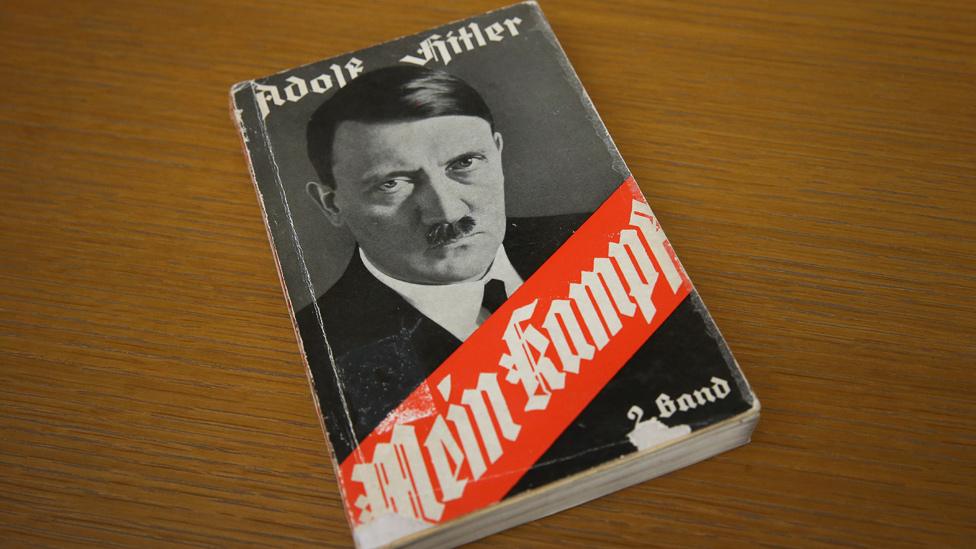
- Published8 January 2016
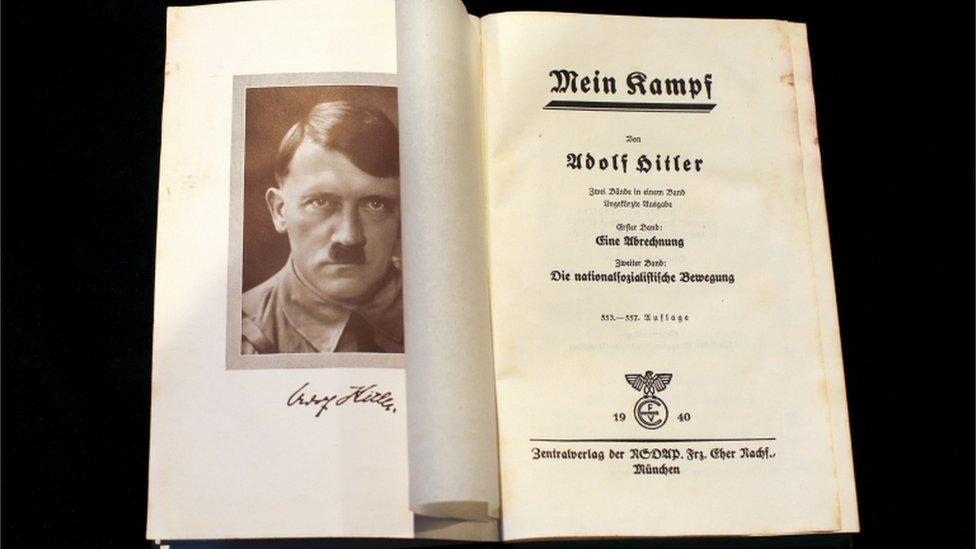
- Published1 January 2016
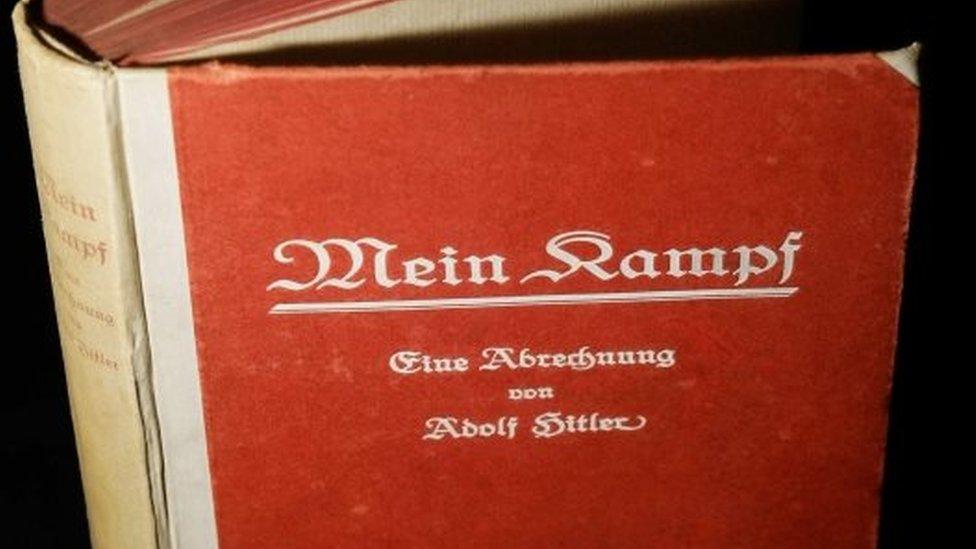
- Published2 December 2015

- Published2 August 2016
